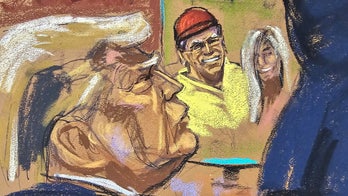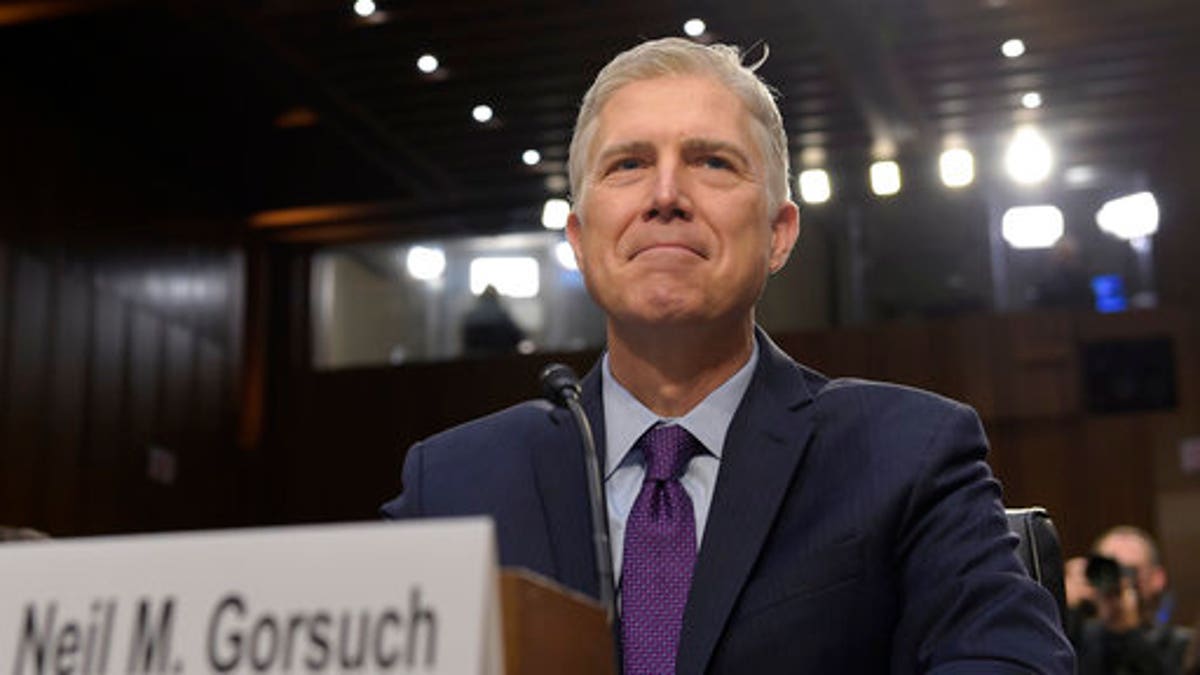
Supreme Court Justice nominee Neil Gorsuch prepares to testify on Capitol Hill in Washington, Tuesday, March 21, 2017, at his confirmation hearing before the Senate Judiciary Committee. (AP Photo/Susan Walsh) (Copyright 2017 The Associated Press. All rights reserved.)
It was a grueling process from President Trump’s nomination of U.S. Circuit Judge Neil Gorsuch in January to the Supreme Court seat left vacant at Justice Antonin Scalia’s death to the Senate’s confirmation of him on Friday.
But now comes the really hard work.
With less than a month left in the court’s current sitting, Gorsuch will have to jump into hearings on a number of controversial issues that will not only gauge the 49-year-old Colorado native’s conservative credentials but also lay bare how he compares to his predecessor, Scalia.
“Scalia was not a monochromatic justice and I don’t think that Gorsuch is that way either,” Stephen Wasby, a professor emeritus at the Rockefeller College of Public Affairs & Policy at the University of Albany, told Fox News.
Here is a look at five cases that Gorsuch will hear in his first month, his responses to which will shed light on what kind of Supreme Court justice he will be:

(The Associated Press)
Trinity Lutheran Church of Columbia, Inc. v. Pauley
Dubbed by many observers as the hot-button issue case of this Supreme Court’s sitting and arguably the biggest church-state case in recent memory, the justices will be asked to address the question, “Whether the exclusion of churches from an otherwise neutral and secular aid program violates the Free Exercise and Equal Protection Clauses when the state has no valid Establishment Clause concern.”
In layman’s terms, the preschool at Trinity Lutheran Church in Missouri filed suit after being denied state funds to improve a playground’s surface used by its preschool by replacing gravel with softer recycled rubber.
The state funds are from a program that gives grants to nonprofits seeking a safer recreational environment for children. Missouri's law -- similar to those in 37 other states -- prohibits direct government aid to educational institutions that have a religious affiliation.
Trinity Lutheran and its supporters are hoping that given his past rulings on religious liberty cases, Gorsuch will tip the scales in favor of the parochial schools. While Gorsuch has not publicly weighed in on this case, many observers say his ruling on the Hobby Lobby Stores v. Sebelius case indicates where he stands.
In that case – where Hobby Lobby sued to challenge the Affordable Care Act’s requirement that employer’s insurance must cover all forms of birth control – Gorsuch wrote in his opinion that courts can’t “decide whether a religious teaching about complicity imposes ‘too much’ moral disapproval on those only ‘indirectly’ assisting wrongful conduct.”
Gorsuch’s 10th Circuit Court of Appeals ruled that federal law prohibited the ACA requirement from applying to closely held corporations and the ruling was later upheld in the Supreme Court in a 5-4 decision.
“Gorsuch seems to be on the side believing that government programs should treat religious freedoms fairly and should recognize the rights of religious organizations to participate in public welfare-type programs,” Stephen Wermiel, a professor at American University’s Washington School of Law told Fox News.
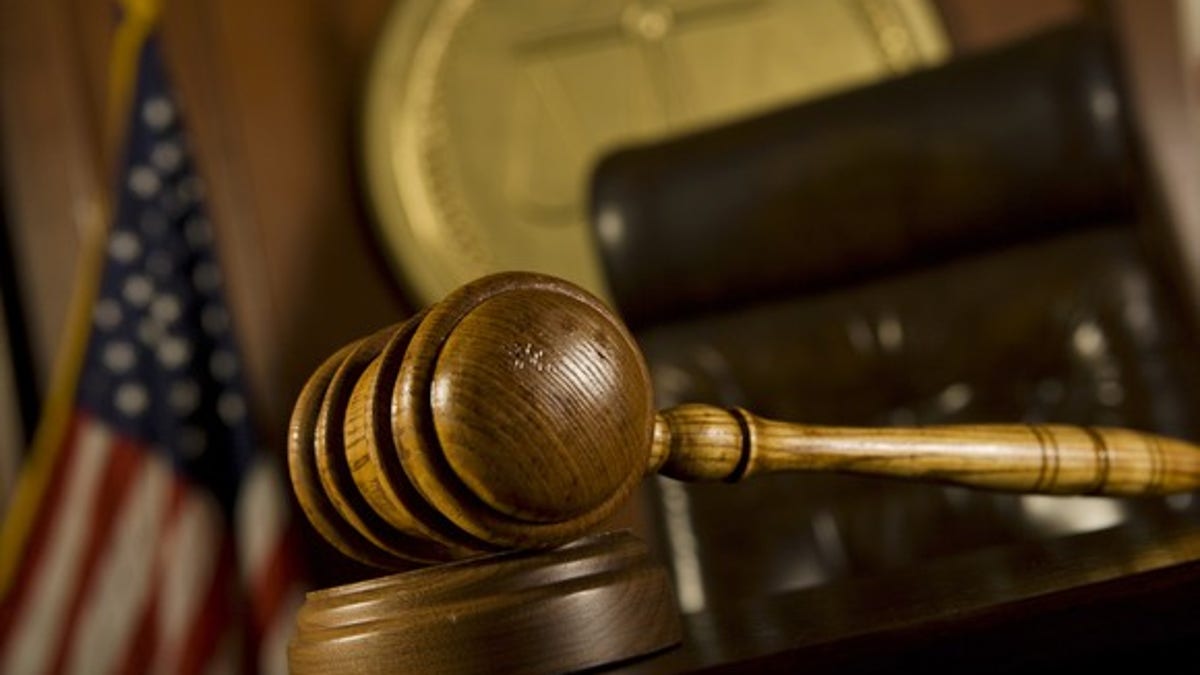
Weaver v. Massachusetts and Davila v. Davis
Both of these cases deal with the Sixth Amendment, the right to a speedy and public trial, and both center around a defendant’s rights and counsel being misused.
In the case of Kentel Weaver, who as a 16-year-old in 2003 murdered a 15-year-old boy, his legal team argues that his Sixth Amendment rights were violated and he had inadequate representation. A court officer kept the public, including his family, locked out for two days while a jury was selected and Weaver’s trial lawyers did not object to the move.
Lawyers for Erick Davila – a Texas gang member convicted of killing a five-year-old girl and her grandmother in a drive-by shooting – question both whether he was provided with ineffective counsel and what legal remedies are afforded to capital defendants.
The Stanford Law Review called Gorsuch’s rulings on Sixth Amendment cases both “restrained” and “interpretive,” noting that his opinions have stated a well-developed position on at least one aspect: “ineffective assistance of counsel claims.”
Gorsuch’s idea of judicial restraint and pragmatism differentiates him from Scalia, whose time on the bench saw him frequently rule in favor of the defendant.
The Supreme Court has long held that a defendant who pleads guilty based on bad advice can show prejudice by demonstrating “a reasonable probability that, but for counsel’s errors, he … would have insisted on going to trial,” the Stanford Law Review noted. “While he admitted that counsel can be ineffective at the plea bargaining phase, Gorsuch would only find a Sixth Amendment infringement where that ineffectiveness denied the defendant ‘his constitutional entitlement to a trial.’”
The review added: “[A] criminal defendant with Sixth Amendment claims can fairly expect an uphill battle to win his vote.”
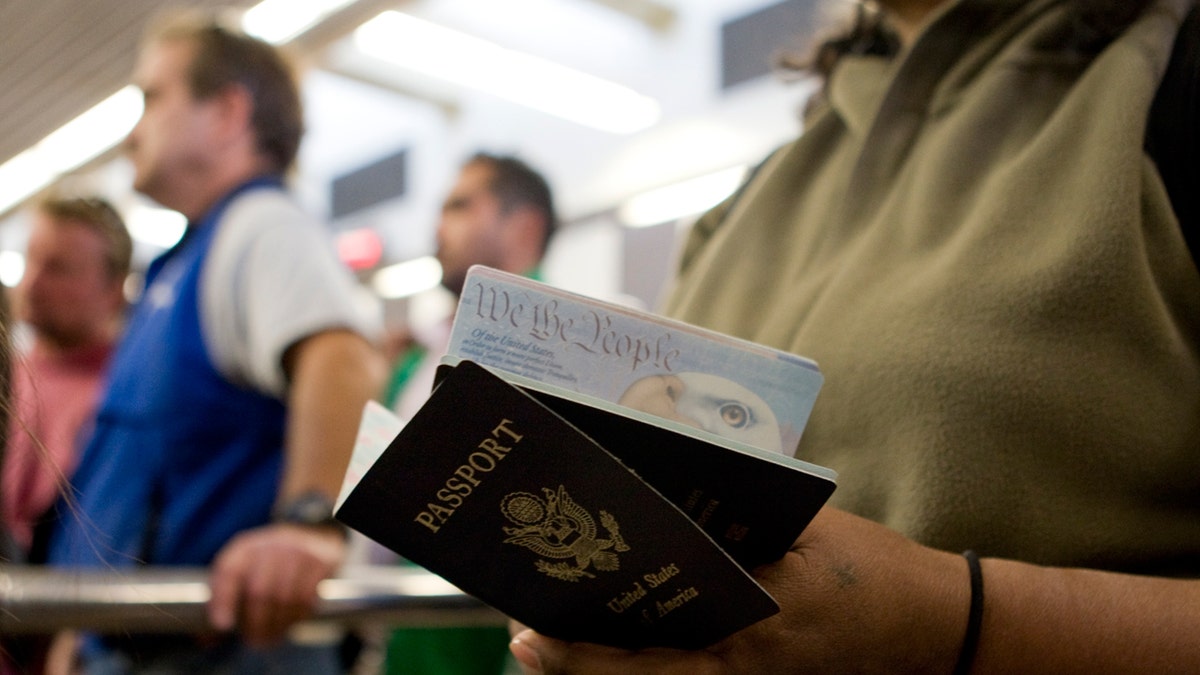
(Reuters)
Maslenjak v. U.S.
In the last scheduled argument of the term, the justices will hear the case of Divna Maslenjak of Ohio -- an ethnic Serb from Bosnia – who was stripped of her U.S. citizenship for lying about the circumstances that brought her to this country.
The U.S. Court of Appeals for the 6th Circuit ruled -- in direct conflict with the U.S. Courts of Appeals for the 1st, 4th, 7th and 9th Circuits -- that a naturalized American citizen can be stripped of her citizenship in a criminal proceeding based on immaterial false statements.
Gorsuch’s record on immigration cases shows that he is neither a staunch defender nor a critic of immigrant rights. During his time on the bench in the 10th Circuit, Gorsuch handled only a few prominent immigration-related cases and ruled in favor of the immigrant slightly less than half the time.
When hearing Alejandre-Gallegos v. Holder last year, Gorsuch initiated disciplinary proceedings against an attorney who he stated had repeatedly done a poor job representing immigrants.
Gorsuch, however, in the case Porro v. Barnes overturned a ruling in a lower court favoring an immigrant who had been shot with a Taser by jailers. While Gorsuch said that the jail did ignore federal policy that prohibits the uses of Tasers on immigration detainees, he ruled that this action did not violate the person’s constitutional rights.
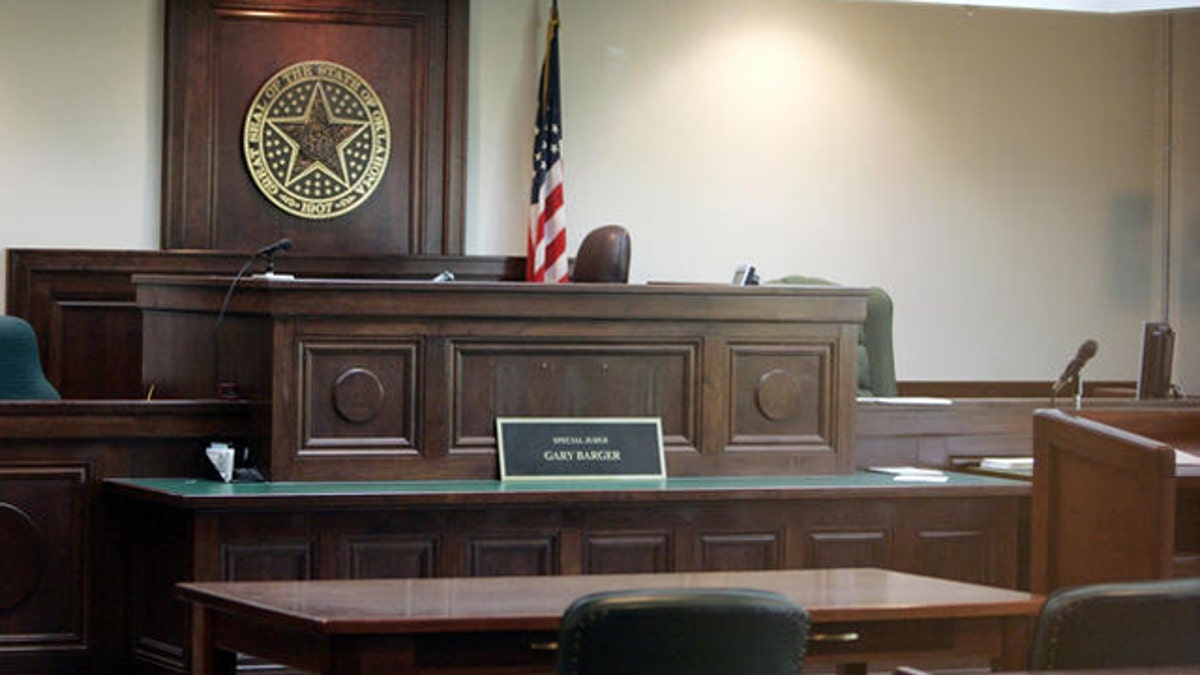
A group opposed to 'Islamofascism' has launched a media blitz in Oklahoma supporting a state constitutional amendment that would prohibit courts from considering Shariah or international law in their decisions. (The Associated Press)
California Public Employees' Retirement System v. ANZ Securities, Inc.
Another case Gorsuch will hear centers on whether certain class-action securities lawsuits can be barred because they were filed too late.
The retirement fund in California has sued various financial institutions over their alleged role in the 2008 collapse of Lehman Brothers.
How the justices rule in this case is expected to have serious consequences for institutional investors and also will determine whether putative class members must file individual complaints before the three-year period imposed by Section 13 of the Securities Act has run out.
Fox News’ Bill Mears contributed reporting to this piece.



